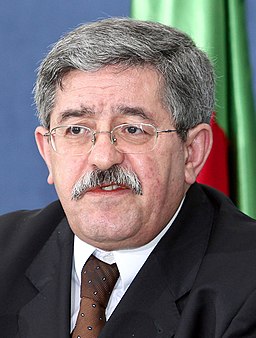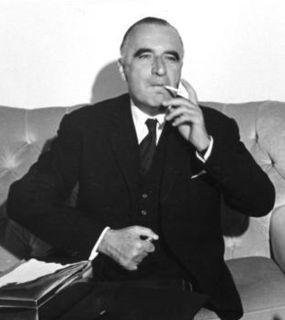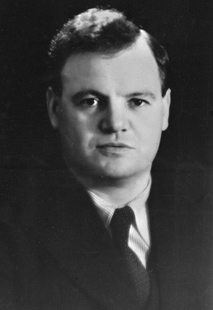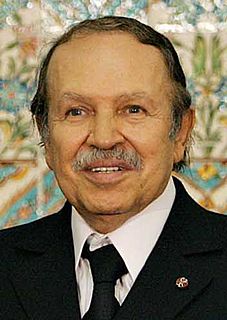
Politics of Algeria takes place in a framework of a constitutional semi-presidential republic, whereby the President of Algeria is head of state while the Prime Minister of Algeria is the head of government. Executive power is exercised by the government. Legislative power is vested in both the government and the two chambers of parliament, the People's National Assembly and the Council of the Nation. A legacy of Algeria's bloody War of Independence from France is a powerful military and security apparatus that put a high value on secrecy. Since 1988, parties other than the ruling FLN have been allowed and multiparty elections have been held, but freedom of political speech, protest and assembly is circumscribed, and the 2014 presidential election was boycotted by major opposition parties. Algeria has been called a "controlled democracy", or a state where the military and "a select group" of unelected civilians—reportedly known to Algerians as "le pouvoir" —make major decisions, such as who should be president.

The President of Algeria is the head of state and chief executive of Algeria, as well as the commander-in-chief of the Algerian People's National Armed Forces.

Abdelaziz Bouteflika, GColIH is an Algerian politician who has been the fifth President of Algeria since 1999. He was Minister of Foreign Affairs from 1963 to 1979. As President, he presided over the end of the bloody Algerian Civil War in 2002, and he ended emergency rule in February 2011 amidst regional unrest. He was the president of the United Nations General Assembly for a term in 1974.

Ahmed Ouyahia is an Algerian politician who has been Prime Minister of Algeria since 2017; previously he was Prime Minister from 1995 to 1998, from 2003 to 2006, and from 2008 to 2012. A career diplomat, he also served as Minister of Justice, and he was one of the founders of the National Rally for Democracy (RND) as well as the party's secretary-general. He is considered by Western observers to be close to the military of Algeria and a member of the "eradicator" faction in the 1990s civil war against Islamist militants.

The Democratic National Rally is a political party in Algeria. It is led by the Prime Minister Ahmed Ouyahia. The party held its Second Congress on 15–17 May 2003.

Algeria elects on national level a head of state - the president - and a legislature. The president is elected for a five-year term by the people. People's National Assembly has 462 members, elected for a five-year term in multi-seat constituencies by proportional representation. Eight seats in the national assembly are reserved for Algerians abroad. The Council of the Nation has 144 members, 96 members elected by communal councils and 48 members appointed by the president. Algeriawesh alors has a multi-party system, with numerous parties in which no one party often has a chance of gaining power alone, and parties must work with each other to form coalition governments. According to a US Embassy cable, the 2009 presidential elections were "carefully choreographed and heavily controlled", with the official turnout figure "exaggerated" by at least 45%.

Islam is the majority religion in Algeria. The vast majority of citizens are Sunni Muslims belonging to Maliki school of jurisprudence, with a minority of Ibadi, most of whom live in the M'zab Valley region. Islam provides the society with its central social and cultural identity and gives most individuals their basic ethical and attitudinal orientation. Orthodox observance of the faith is much less widespread and steadfast than is identification with Islam. There are also Sufi philosophies which arose as a reaction to theoretical perspectives of some scholars.

The Algerian Civil War was an armed conflict between the Algerian Government and various Islamic rebel groups which began in 1991 following a coup negating an Islamist electoral victory. The war began slowly as it first appeared the government had successfully crushed the Islamist movement, but armed groups emerged to fight jihad and by 1994, violence had reached such a level that it appeared the government might not be able to withstand it. By 1996–7 however it became clear that the violence and predation of the Islamists had lost its popular support, although fighting continued for several years after.

The People's National Assembly, abbreviated APN, is the lower house of the Algerian Parliament. It is composed of 462 members directly elected by the population. Of the 462 seats, 8 are reserved for Algerians living abroad. Members of the People's National Assembly are directly elected through proportional representation in multiple-member districts and serve terms lasting five years at a time. The last election for this body was held on 17 May 2017. This body and of the Algerian Parliament is seen as nonrepresentative of the Algerian people's interest because of the presidency, which controls the majority of governmental power. The minimum age required for election into the APN is 28.

French legislative elections took place on 18 November and 25 November 1962 to elect the second National Assembly of the Fifth Republic.

French legislative elections to elect the third National Assembly of the Fourth Republic took place on 2 January 1956 using party-list proportional representation. The elections had been scheduled for June 1956; however, they were brought forward by Edgar Faure using a constitutional sanction.

Legislative elections were held in Algeria on 17 May 2007. 24 political parties and around 100 independent lists with a total of more than 12,000 candidates competed for the 389 seats in the National People's Assembly. While most Algerians voted on May 17, immigrants from Algeria to other countries and Algerians living in the Sahara and other nomads and semi-nomads voted on May 16 due to the distance from Algiers, the country's capital.

The 2002 Algerian Legislative election was held in Algeria on 30 May 2002 to elect members of the People's National Assembly. The governing National Liberation Front (FLN) won a majority of seats in the election. The election suffered from a low turnout, violence and boycotts by some opposition parties.

A legislative election was held in Algeria on 10 May 2012. The incumbent coalition, consisting of the FLN of President Abdelaziz Bouteflika and the RND of Prime Minister Ahmed Ouyahia, held on to power after winning a majority of seats. The Islamist parties of the Green Algeria Alliance lost seats.

The Green Algeria Alliance, short Green Alliance was an Islamist coalition of political parties, created on 7 March 2012 for the Algerian legislative election, 2012. It consisted of the Movement of Society for Peace (Hamas), Islamic Renaissance Movement (Ennahda) and the Movement for National Reform (Islah). The alliance was led by Bouguerra Soltani of the Hamas.

Presidential elections were held in Algeria on 17 April 2014. Incumbent President Abdelaziz Bouteflika was re-elected with 82% of the vote. Issues in the campaign included a desire for domestic stability after the bloody civil war of the 1990s, the state of the economy, the frail health of the 15 year incumbent and 77-year-old president whose speech was "slurred and inaudible" in his only public outing during the campaign, and the less-than-wholehearted support given the president by normally united and discrete ruling class.

Parliamentary elections were held in Algeria on 4 May 2017.

Presidential elections are scheduled to be held in Algeria on 18 April 2019.














